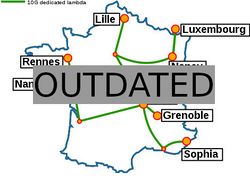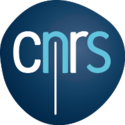Grid5000:Home
|
Grid'5000 is a large-scale and flexible testbed for experiment-driven research in all areas of computer science, with a focus on parallel and distributed computing including Cloud, HPC and Big Data and IA. Key features:
Grid'5000 is merging with FIT to build the SILECS Infrastructure for Large-scale Experimental Computer Science. Read an Introduction to SILECS (April 2018)
Older documents:
|
Random pick of publications
Five random publications that benefited from Grid'5000 (at least 2779 overall):
- Maxime Lanvin, Pierre-François Gimenez, Yufei Han, Frédéric Majorczyk, Ludovic Mé, et al.. Towards understanding alerts raised by unsupervised network intrusion detection systems. The 26th International Symposium on Research in Attacks, Intrusions and Defenses (RAID ), Oct 2023, Hong Kong China, France. pp.135-150, 10.1145/3607199.3607247. hal-04172470 view on HAL pdf
- Can Cui, Imran Ahamad Sheikh, Mostafa Sadeghi, Emmanuel Vincent. Improving Speaker Assignment in Speaker-Attributed ASR for Real Meeting Applications. The Speaker and Language Recognition Workshop Odyssey 2024, Jun 2024, Quebec, Canada. hal-04495886v2 view on HAL pdf
- Quentin Guilloteau, Florina M Ciorba, Millian Poquet, Dorian Goepp, Olivier Richard. Longevity of Artifacts in Leading Parallel and Distributed Systems Conferences: a Review of the State of the Practice in 2023. REP 2024 - ACM Conference on Reproducibility and Replicability, ACM, Jun 2024, Rennes, France. pp.1-14, 10.1145/3641525.3663631. hal-04562691 view on HAL pdf
- Ilhem Fajjari, Wassim Aroui, Joaquim Soares, Vania Marangozova. Use Cases Requirements. UGA (Université Grenoble Alpes). 2024. hal-04450028 view on HAL pdf
- Tiago Trevisan Jost, Arun Thangamani, Raphaël Colin, Vincent Loechner, Stéphane Genaud, et al.. GPU Code Generation of Cardiac Electrophysiology Simulation with MLIR. Euro-Par 2023: Parallel Processing, Aug 2023, Limassol, Cyprus. pp.549-563, 10.1007/978-3-031-39698-4_37. hal-04206195 view on HAL pdf
Latest news
Failed to load RSS feed from https://www.grid5000.fr/mediawiki/index.php?title=News&action=feed&feed=atom: Error parsing XML for RSS
Grid'5000 sites
Current funding
As from June 2008, Inria is the main contributor to Grid'5000 funding.
INRIA |
CNRS |
UniversitiesUniversité Grenoble Alpes, Grenoble INP |
Regional councilsAquitaine |


